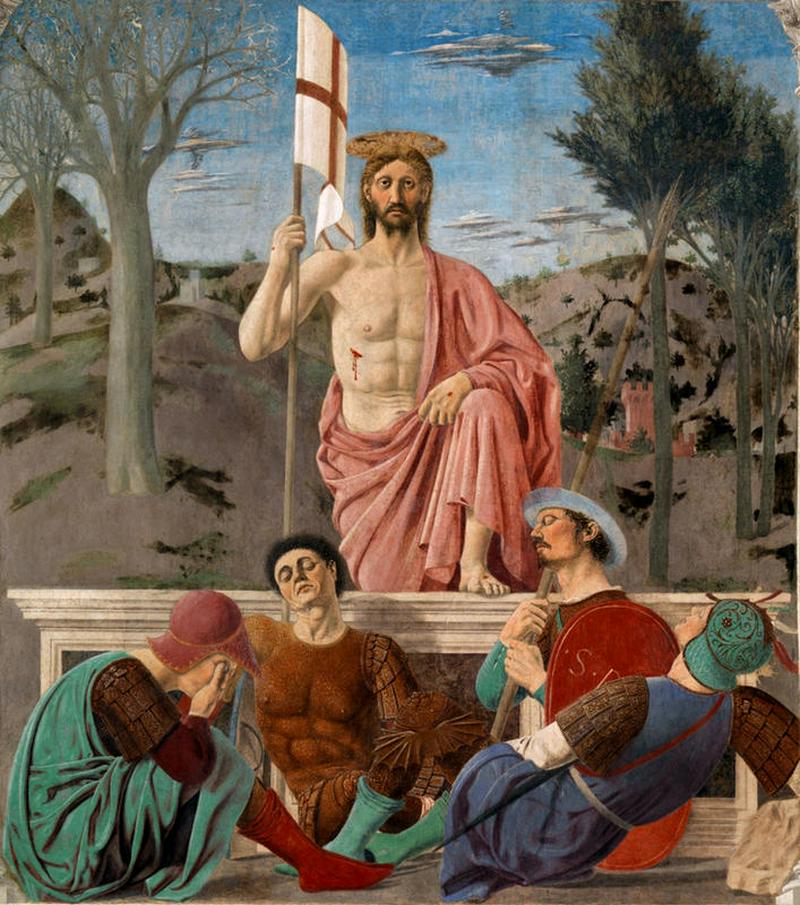The Very First Easter Was Today In 31 AD, According To Dionysius Exiguus
By | March 23, 2021

Pretty much every culture celebrates the arrival of flowers, babies, and everything else that comes with spring. Pagans celebrate a time of renewal, those of the Jewish faith celebrate the history and the hope symbolized by the Exodus from Egypt during Passover, and Christians celebrate the resurrection of Jesus with magic rabbits, chocolate eggs, and a lot of candy. What's up with that?
Where Did Easter Come From?
Theoretically, the first Easter occurred in 31 C.E., although Biblical scholars will argue forever about exactly when the resurrection occurred. Whatever the case, much of the festivities, including their timing, have roots in the pagan celebration of Eostre, honoring the goddess of the same name, though Christians put a distinctly puritan spin on things. Eostre celebrations, which occurred on the vernal equinox, traditionally involved wine, orgies, and other celebrations of fertility that happened to let those ancient pagans get their freak on.

Who Decided When Easter Is?
Calculating the date of Easter isn't as simple as planting a flag in December 25 or October 31. The holiday somewhat complicatedly falls directly after the first full moon of the spring equinox, or the Paschal full moon. This formula was created by the Council of Nicaea, who determined that almost every Easter between 1600 to 2900 will fall on a Sunday between March 22 and April 25. The whole thing was overseen by the monk Dionysius Exiguus, who also dated Christ's birth as December 25.
Prior to computers and calendars, Dionysius calculated the dates of 95 future Easters between 532 and 626 using the Metonic 19-year lunar cycle. Through a combination of the Metonic and Cryillian tables, he created a set of rules that determine the perfect day to hold Easter celebrations, handing down a final and much-needed consensus on one of the most important feasts of the ecclesiastical calendar.

What About The Rabbits And Stuff?
Around 1200 C.E., Christians began adopting pagan rituals, leading Easter revelers to fast during Lent before decorating eggs and eating them as a treat. They were still far from chocolate eggs left in baskets by a magic rabbit, but civilization was moving closer to the Cadburificiation of the holiday. They decided that the pagan fertility rite of egg rolling was the perfect symbol of the boulder rolling away from Jesus's tomb, and that's why the White House lawn gets torn up every year.
Meanwhile, the Osterhase, a giant anthropomorphic rabbit, was brought to the U.S. by Protestant German immigrants. The "Easter Hare" dates back to the 1600s, when German doctor Johannes Richier wrote a dissertation against eating too many eggs during the holiday. Undeterred by Richier, the German people continued to nosh on festive eggs well into the 19th century, when they brought the tradition Stateside.
We don't snack too much on actual eggs during Easter anymore, however, thanks to the miraculous invention of the chocolate Easter egg. Crafted in Germany in 1828 and perfected in France in 1842, these chocolate eggs were initially smooth orbs of dark chocolate, but in 1875, Cadbury introduced their first version of the treat before rolling out a variety of eggs in the U.K. in 1893 and making every Easter thereafter a much sweeter and ironically more sinful day.

